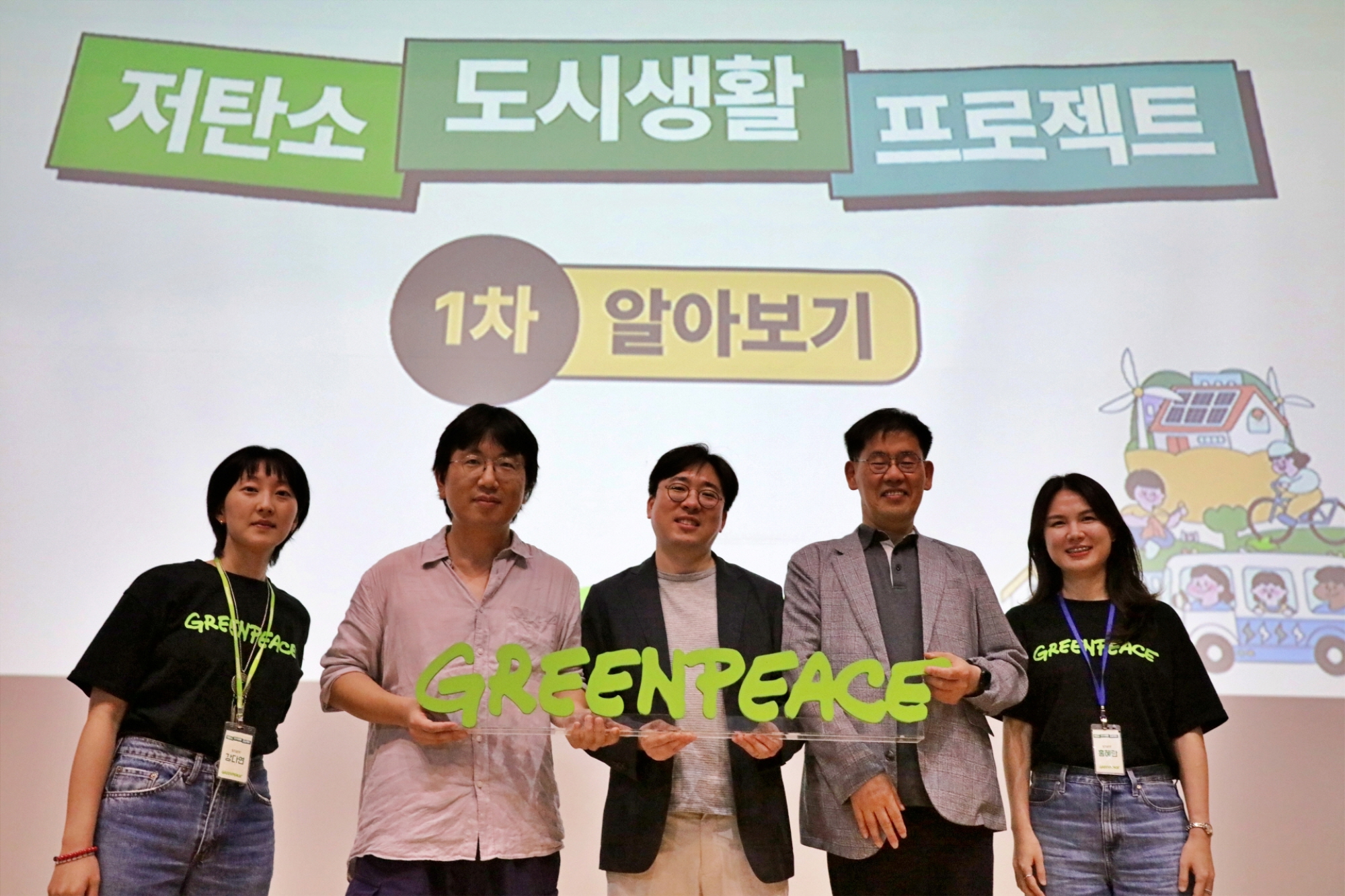
Greenpeace announced on the 19th that it has held the first event of the ‘Low Carbon Urban Living Project: Gyeonggi Edition’ to reduce carbon emissions with the participation of citizens. The Low Carbon Urban Living Project allows citizens to directly experience the connections between their daily challenges and climate change, as well as propose solutions.
On the 17th, Greenpeace held the inaugural event of the ‘Low Carbon Urban Living Project: Gyeonggi Edition’ at the Gyeonggi University Convention Center in Suwon, sharing concerns about energy and transportation issues in the era of climate crisis with participating citizens. This was followed by expert lectures presenting potential solutions.
Economist Kim Byeongkwon (Green Transition Institute) cited various climate crisis examples worldwide, such as the record-breaking temperatures exceeding 60 degrees Celsius in Iran and the floods in Pakistan that left 33 million displaced. He emphasized the necessity of alternative lifestyles that comprehensively consider daily carbon emissions and quality of life, alongside the need for public policy support and citizens’ demands for related policies.
Kim Jongkyu, CEO of the renewable energy firm Sixty Hertz, pointed out that the high initial investment costs, including permits, make the spread of renewable energy in South Korea difficult compared to other countries. He introduced the ‘Gyeonggi RE100 Trading Platform,’ where citizens can buy and sell renewable energy from companies, stressing the need for greater citizen interest and demands for more companies to utilize renewable energy.
Author Chun Hyunwoo (‘Finding My Way in a Kidnapped City’) argued that our modes of transportation must also change in the era of climate crisis. He pointed out that the prevalence of cars has made transportation a contributor to the climate crisis, emphasizing the need to increase the share of public transport, bike lanes, and pedestrian pathways. He stated that changes in transportation networks and systems connecting our living spaces are necessary.
Next, campaigners Kang Dayeon and Hong Hyeran from Greenpeace introduced the corporate renewable energy and eco-friendly transportation campaigns. Kang highlighted that natural gas power plants are most prevalent in Gyeonggi Province and pointed out the declining economic feasibility of gas, greenhouse effects, and health impacts. She proposed that citizens can create and directly use renewable energy or sell it in citizens’ renewable energy cooperatives.
Hong emphasized the seriousness of carbon emissions in the transportation sector and the necessity for sustainable, eco-friendly transportation. She shared various domestic and international examples, including the ‘Living Without a Car for a Month’ experiment in the ecological transportation village of Suwon, Gyeonggi, Germany’s 9 Euro ticket, and Singapore’s public transportation design considering social minorities.
Various experiential booths were set up where citizens could learn about recycling by tailoring clothes or dismantling toys. Additionally, there was a jazz music performance focused on climate change.
Meanwhile, the ‘Low Carbon Urban Living Project’ aims to not only share awareness of energy and transportation issues among citizens through this first event but also to organize second on-site experiential activities. Citizens will visit energy self-sufficient villages in Gyeonggi and explore alternatives by utilizing demand-responsive transportation. In the final third policy proposal activity, citizens plan to propose energy and transportation policies in Gyeonggi based on their previous experiences in response to the climate crisis.
Lee Sang-jin daedusj@autodiary.kr

